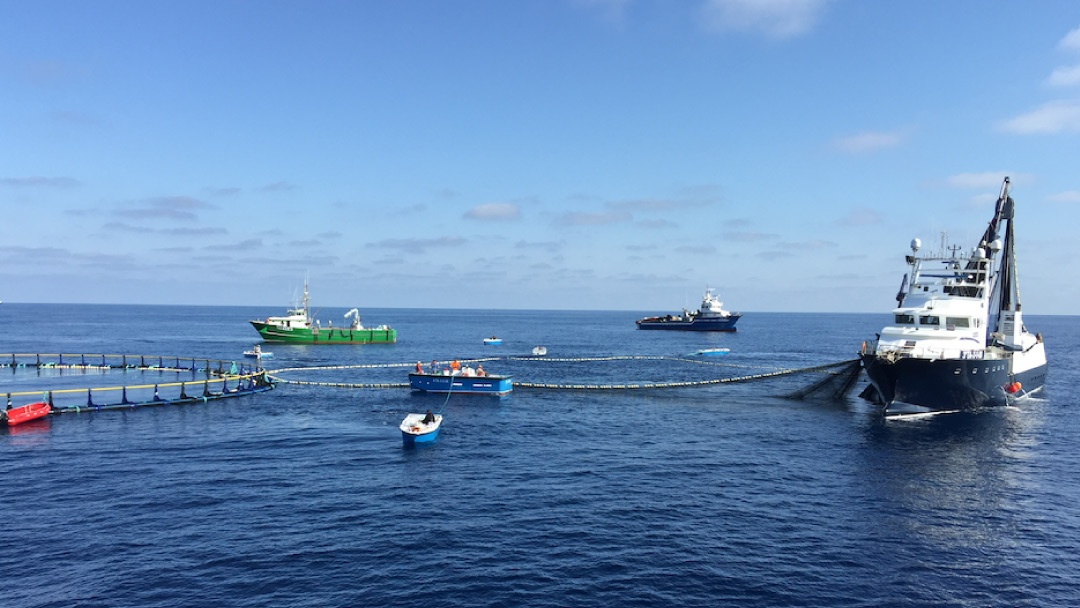
- At 3.7 miles (6.6 kilometers) from the coast of Getaria (Gipuzkoa), the first fish farm in the Basque Country will be installed. The two drawers are 50 meters in diameter and 40 meters in depth. If they adapt well to sea conditions, in the summer of 2025 there will be 50 brown tuna or bluefin tuna. The project, promoted by the Basque Government, will be carried out by the company Itsasbalfego (70% of the Catalan company Balfego and 30% of Azti). The project that will channel the full share of the Biscay and Gipuzkoan fleet is welcomed by the cofradías from both territories and so far has not generated major debates on the street. On 14 November in Getaria, the Basque association Artzape organized a round table in which Eli Pagola interviewed Lorea Flores in the Egonarria programme. Yes, there is something moving on this issue.

For the time being, the presence of bluefin tuna in the two large cages to be set up on the coast of Getaria is not expected. If it adapts well to the sea situation, Itsasbalfego's goal is to fatten 50 tuna in the summer of 2025. The Basque Government has approved the installation of another four or five cages in the short term, which would entail a total cost of EUR 7 million to fatten 1,100 tonnes a year, that is, to sell it the full share of bluefin tuna from Gipuzkoa and Bizkaia.
This is not a change, since since 2010 the cofradías of Gipuzkoa and Bizkaia sell their quota of nice, as it is economically more profitable than fishing and the sale of the nice. Currently, the quota is sold to Balfego and the Catalan company is the most quoted in the Mediterranean. However, Jokin Sagarzazu explained in his Berria article that if the Spanish Government amended the law last year and a boat does not fish its quota in two years, it will lose its right. That is why they will change the formula: the boats here will "fish" from the Itsasbalfego cage and sell that fish to Balfego.
Questions raised by this model
The head of Greenpeace in the Basque country, Lorea Flores, spoke in the Egonarria programme. He will participate in the round table to be held on 14 November in Getaria. Here you can see the full interview:
The farm opens up questions: from fishing with rods, the boats will go to the technique of purse. 12 The claim of the Mila Association is that in the first 12 miles of the coast only artisanal fishing is practiced, so that the species will reproduce peacefully and also benefit from the boats that fish on the high seas, but this project will put the cages to 3.7 miles, the large boats will fish with purse techniques... What consequences will it have for small-scale fishermen? How many jobs does one model generate and the other what does each model bring to society?
Flores explained that these companies use chemical drugs to protect cages from infections and to deal with diseases that spread among overcrowded animals, such as antibiotics, which are not exposed. These chemicals will be poured into the sea very close to the coast.
He also referred to the context, to what the warming of the Mediterranean has been attributed to the fact that Balfego has obtained worse results in its crops and, as the Cantabrian River warms up, has he come to Euskal Herria in search of better conditions for the future?
Round table “Where does the Zimarroi Nursery of Getaria take us?” on November 14 at Getaria
Based on this question, the project will be attended by Izaskun Suberbiola (head of the Mater Maritime Ecoactive Museum), Lorea Flores (coordinator of Greenpeace of the Basque Country), Leo Belaustegi (former fisherman and member of 12,000 Ondarru), Leandro Azkue (director of Fisheries and Aquaculture of the Basque Government).
The round table, organised by the Basque association Artzape, will be dynamised by Mirene Begiristain. It will be on November 14, from 18:30 pm, in the Plaza de la Verdura.